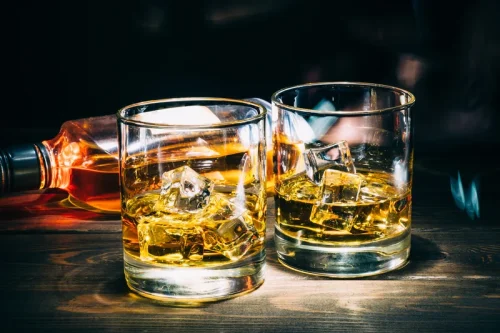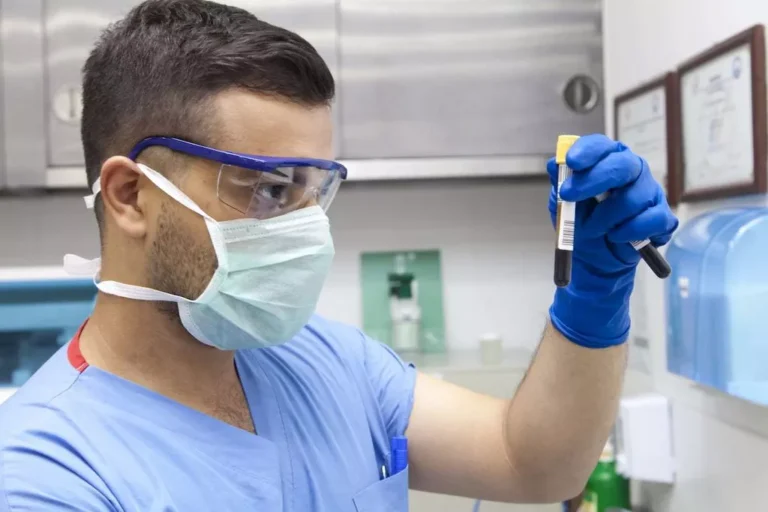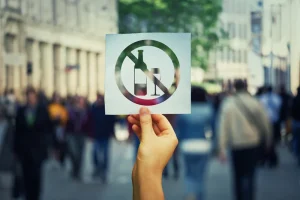
Learn about various types of alcohol addiction support groups, how effective they are, the support for alcoholism issues they provide, and what options you have for mutual support groups to aid you in your recovery. Alcohol support groups offer peer support for those who are recovering from alcohol use disorder. These groups offer https://ecosoberhouse.com/ different methods, such as 12-step programs, mindfulness techniques, and cognitive behavioral therapy. AA meetings vary in format, with some focusing on personal stories, readings from the Big Book, or open discussion. Meetings may cater to specific demographics, but they generally welcome anyone who desires to stop drinking.

Mục Lục
Long-term Recovery Support

Specific groups are available for members who are women, nonbinary, BIPOC (Black, Indigenous, and People of Color), or LGBTQIA+. Additional meetings are led by Recovery Dharma Online, a peer-led effort coordinated by members of the Recovery Dharma group. While connecting with other sober users on the app is free, coaching is available for $99 a month. The membership includes unlimited chat messaging and a weekly 20-minute voice call.
- In addition to organizing meetings, SMART offers a wide collection of online resources and media, including videos, podcasts, and worksheets.
- This is particularly helpful for smaller support organizations that don’t have many locations, allowing you to attend, even if you don’t live near a meeting location.
- These advances could optimize how treatment decisions are made in the future.
- Unlike the 12 Steps of AA, SMART Recovery uses its Four-Point Program to help members change their behaviors.
SMART™ Recovery
The support group welcomes people of all faith or no faith and aims to promote sobriety without religion. LifeRing does not use steps and instead aims to promote self-recovery through peer support. The organization encourages people to go to other support groups and therapy if they wish to do so. Women for Sobriety offers peer support and group chats online, in-person meetings, and exercise and meditation classes. The organization also offers annual weekend conferences and nutritional advice. Women for Sobriety has a program for people who identify as women and are experiencing alcohol use disorder.

Are online alcohol support groups right for me?
Below is a selection of alcohol support groups that people may wish to join. However, the researchers note that support groups are more likely than other interventions to lead to complete abstinence from alcohol use. The tour by Jane’s Addiction was a co-headlining one shared with another veteran ’80s/’90s band, Love & Rockets. Their outing began Aug. 9 in Las Vegas and was scheduled to wrap up at L.A.’s YouTube Theater on Oct. 16, where the band already performed one successful show. Altogether, 15 dates are being canceled — less than a month after Live Nation announced that seven dates were being added to the end of the tour, which also featured Love & Rockets as co-headliner. The canceled shows were in Bridgeport, Toronto, Rochester Hills, Milwaukee, Chicago, Indianapolis, Huntsville.
Together, you can gain a greater understanding of how to help your loved one face their addiction. Al-Anon can also help you cope with struggling with alcohol addiction the effects that a loved one’s alcoholism can have on you. Sponsors can also provide encouragement and promote accountability.

Best for Buddhist principles: Recovery Dharma
The organization believes in anonymity and encourages any group of two or more people to call themselves an Alcoholic Anonymous group. In The Rooms is a free online recovery tool that offers 130 weekly online meetings for those recovering from addiction and related issues. We embrace multiple pathways to recovery, including all 12 Step, Non-12 Step, Wellness and Mental Health modalities. Al-Anon is a support group for people whose lives have been affected by someone else’s drinking. Al-Anon helps families and friends of people with AUD feel less alone and learn how to set healthy boundaries. Family and friends of people with AUD must live their lives and learn how to manage their emotions and reactions.
- New York State, located in the northeastern region of the United States, is a captivating and diverse land of immense significance.
- Each participant is encouraged to share their successes and focus on accepting themselves as they are and their personal progress.
- Because AUD is a chronic, relapsing disorder, persistence is key.
- By developing self-determination and trusting your Sober Self, says LifeRing, you can determine your future and how to get to your goal.
- Within these treatment levels, various therapies and specialized programs are offered to cater to individual needs.
- Loosid focuses on living a happy, fulfilling life with other people in sobriety and offers resources and suggestions for sober dating and sober nightlife activities.
Support groups are non-clinical groups, often run by peers, where people can share their experiences and receive mutual support. Effective support groups should provide a safe, culturally sensitive environment where people can talk openly, without judgment, about their experiences. PAL was founded in 2005 by Licensed Independent Substance-Abuse Counselor (LISAC) Michael Speakman. While working as a counselor for addicts he found that addiction affects the entire family in a way that’s overwhelmingly destructive. Especially parents of addicts feel helpless, scared, guilty and alone.
Alcohol Support Groups and Resources
- Frequently, when you take your focus off of your sick loved one and put it back where it belongs—on yourself and your own life, the addict will follow your example and seek recovery.
- In addition to its social components, Loosid also works as a recovery app, with a Sobriety Help feature to help individuals work through a recent relapse and how people can maintain sobriety.
- In addition to support groups, people in recovery should also maintain a connection with their treatment counselor.
- If transportation is a barrier, the simplicity of logging online can help eliminate an obstacle that would otherwise keep you from seeking help.
- The cost for sobriety support groups ranges from free up to hundreds of dollars, depending on the program.
- In addition to these groups, there are often links to family recovery groups for specific addictions or behaviors on the sites for the programs dedicated to them.
No matter where you look, you seem to see ads enticing you with the promise of how much more fun your life can be with a few drinks. But for someone working on their sobriety, these ads are far from fun reminders of their addiction. The cost for sobriety support groups ranges from free up to hundreds of dollars, depending on the program. Those with one-on-one components or structured coaching aspects will generally cost more, whereas groups that meet in-person and are led by former addiction sufferers tend to be free (with suggested donations). Loosid is a community for people looking to thrive and enjoy fun events and activities while abstaining from alcohol and other substances. Meeting facilitators follow a structured program focusing on mental health and education.
- They often help with what is known as “step work” in which a person works through the 12 steps of AA in order to achieve and maintain sobriety.
- More than a buzzword, the sober curious movement is gaining traction.
- This “peer support” time together has been shown to be incredibly beneficial and often results in higher substance use abstinence rates and feeling more satisfied with substance use treatments.
- You will want to understand what will be asked of you in order to decide what treatment best suits your needs.
- All treatment calls are accepted by drug and alcohol centers advertising with the Call Affiliate LLC network.
- Motivational enhancement is conducted over a short period of time to build and strengthen motivation to change drinking behavior.
